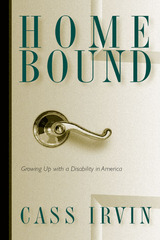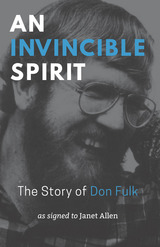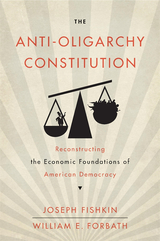3 books about Quadriplegics

Afterimage
Film, Trauma And The Holocaust
Joshua Hirsch
Temple University Press, 2003
The appearance of Alain Resnais' 1955 French documentary Night and Fog heralded the beginning of a new form of cinema, one that used the narrative techniques of modernism to provoke a new historical consciousness. Afterimage presents a theory of posttraumatic film based on the encounter between cinema and the Holocaust. Locating its origin in the vivid shock of wartime footage, Afterimage focuses on a group of crucial documentary and fiction films that were pivotal to the spread of this cinematic form across different nations and genres.
Joshua Hirsch explores the changes in documentary brought about by cinema verite, culminating in Shoah. He then turns to teh appearance of a fictional posttraumatic cinema, tracing its development through the vivid flashbacks in Resnais' Hiroshima, mon amour to the portrayal of pain and memory in Pawnbroker. He excavates a posttraumatic autobiography in three early films by the Hungarian Istvan Szabo. Finally, Hirsch examines the effects of postmodernism on posttraumatic cinema, looking at Schindler's List and a work about a different form of historical trauma, History and Memory, a videotape dealing with the internment of Japanese Americans during the Second World War.
Sweeping in its scope, Afterimage presents a new way of thinking about film and history, trauma and its representation.
Joshua Hirsch explores the changes in documentary brought about by cinema verite, culminating in Shoah. He then turns to teh appearance of a fictional posttraumatic cinema, tracing its development through the vivid flashbacks in Resnais' Hiroshima, mon amour to the portrayal of pain and memory in Pawnbroker. He excavates a posttraumatic autobiography in three early films by the Hungarian Istvan Szabo. Finally, Hirsch examines the effects of postmodernism on posttraumatic cinema, looking at Schindler's List and a work about a different form of historical trauma, History and Memory, a videotape dealing with the internment of Japanese Americans during the Second World War.
Sweeping in its scope, Afterimage presents a new way of thinking about film and history, trauma and its representation.
[more]

Home Bound
Growing Up With A Disability
Cass Irvin
Temple University Press, 2003
"When I was growing up, I learned that if you were a girl you went to school and college, then you married, became a wife and had a family. . . . When I became disabled, my journey, I was pretty sure, was not going to take me in those directions. What was I supposed to be? What kind of life was I supposed to have?"Once polio had made her a quadriplegic, Cass Irvin didn't know where she fit in or what would become of her. Neither did her parents, teachers, counselors, or rehabilitation therapists. And so began her search for a place to call home.In this memoir, Cass Irvin tells of the remarkable journey that transformed her from a young girl too timid to ask for help to a community activist and writer who speaks forcefully about the needs of people with disabilities. As a young girl she was taken to Warm Springs, Georgia, where she learned about living as a disabled person and found a hero in Franklin Delano Roosevelt, the famously if silently disabled president. Bright and inquisitive, Cass soon began to question the prevailing assumptions of a society that had no place for her and to question her own meekness.In time, her keen sense of injustice gave her the courage to fight for a college education. That personal victory emboldened her to find the means to live independently, but it also persuaded her that political work is the key to enabling all people with disabilities to live fulfilling lives. This book, then, is testimony to the importance of community building and organizing as well as the story of one woman's struggle for independence.
[more]

An Invincible Spirit
The Story of Don Fulk
Don Fulk, as signed to Janet Allen
Gallaudet University Press, 2019
“Don taught us how to be a real independent living center. Nothing was easy; every issue that came up on the road to Don’s independence was a challenge and a struggle, but the experience pushed us and we learned from it. We were not going to let Don down; all of us were committed to Don’s freedom and independence.”
—Kathleen Kleinman, Executive Director, TRPIL (Transitional Paths to Independent Living)
Profoundly deafened as an infant, Don Fulk didn’t learn his name or go to school until the age of ten. When he was eighteen years old and a budding superstar on his football and basketball teams, he broke his neck in a swimming accident, and became paralyzed. After his injury, he was confined to a bed in his parents’ home for eight years, unable to move and barely able to communicate. After his family could no longer care for him, he spent nine years in a nursing home where he suffered from abuse and neglect.
Yet through a life marred by isolation and frustration, Fulk endured with strength, humor, and grace. He never gave up pursuing his dreams for independence and self-worth, and improving the lives of others. He fought a system that was unfair and discriminatory, and helped pave the way for people with disabilities to live independently. Don Fulk signed his story to author Janet Allen, describing his difficult home life, the incredible friends who changed his life, and his dramatic escape from an abusive nursing home. An Invincible Spirit is a story of hope, empowerment, and the battles people with disabilities have fought—and continue to fight—to improve the quality of their lives.
—Kathleen Kleinman, Executive Director, TRPIL (Transitional Paths to Independent Living)
Profoundly deafened as an infant, Don Fulk didn’t learn his name or go to school until the age of ten. When he was eighteen years old and a budding superstar on his football and basketball teams, he broke his neck in a swimming accident, and became paralyzed. After his injury, he was confined to a bed in his parents’ home for eight years, unable to move and barely able to communicate. After his family could no longer care for him, he spent nine years in a nursing home where he suffered from abuse and neglect.
Yet through a life marred by isolation and frustration, Fulk endured with strength, humor, and grace. He never gave up pursuing his dreams for independence and self-worth, and improving the lives of others. He fought a system that was unfair and discriminatory, and helped pave the way for people with disabilities to live independently. Don Fulk signed his story to author Janet Allen, describing his difficult home life, the incredible friends who changed his life, and his dramatic escape from an abusive nursing home. An Invincible Spirit is a story of hope, empowerment, and the battles people with disabilities have fought—and continue to fight—to improve the quality of their lives.
[more]
READERS
Browse our collection.
PUBLISHERS
See BiblioVault's publisher services.
STUDENT SERVICES
Files for college accessibility offices.
UChicago Accessibility Resources
home | accessibility | search | about | contact us
BiblioVault ® 2001 - 2024
The University of Chicago Press









